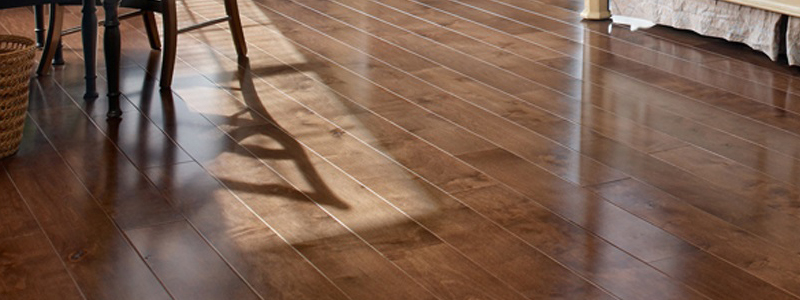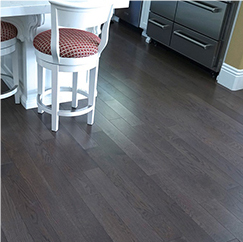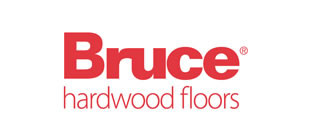 Engineered Hardwood flooring can bring warmth and style to any room in your home. This flooring type is real hardwood – “engineered” simply refers to the way it’s manufactured.
Engineered Hardwood flooring can bring warmth and style to any room in your home. This flooring type is real hardwood – “engineered” simply refers to the way it’s manufactured.
Get inspired! Use our room visualizer (icon on bottom right) to see today’s innovative flooring products in your home.


Engineered wood flooring has many benefits over a solid wood flooring product.
- Made of several layers that are glued together in a cross-grain construction. The top layer is crafted from natural hardwood veneers.
- Stronger and more structurally sound compared to a single piece of solid wood – won’t buckle, cup, gap, or twist.
- Ideal for Florida’s climate – resistant to seasonal expansion and contraction.
- Can be installed below grade and direct to concrete – solid wood floors cannot.
- Environmentally responsible – using half as many trees as solid wood floors.
Create texture, depth, and beauty with expertly crafted natural hardwoods which provide superior performance.
Come visit our Lakewood Ranch or Sarasota showroom to see all of today's best options or call us to schedule your free flooring estimate and shop at home!



![]()
Call Today for Your Free Estimate!
Frequently Asked Questions (FAQs)
Engineered hardwood flooring is a product made up of a core of hardwood, plywood or high density fiberboard and a top layer of hardwood veneer that is glued on the top surface of the core and is available in almost any hardwood species. The product has the natural characteristics of the selected wood species as opposed to a photographic layer. The “engineered” product has been designed to provide greater stability, particularly where moisture or heat pose problems for solid hardwood floors.
Engineered hardwood is more versatile and stable than solid hardwood and laminate; more resistant to moisture and humidity than solid hardwood; better for below-grade installations - basements, where dampness is common; able to be installed over radiant heating systems, which tend to dry out solid hardwood causing the boards to shrink, cup and buckle; ideal on a concrete subfloor, either as a direct glue-down or a floating floor.
The instability of solid hardwood is usually moisture or heat related. Under adverse conditions, solid hardwood floors can warp, cup, swell or split apart. Engineered hardwood flooring overcomes these problems by constructing a multiple-ply plank which counteracts twisting and remains flat and intact. This makes engineered hardwood flooring a better choice for installation over radiant heat sources, and over concrete whether it’s below grade or above.
In addition to the top hardwood veneer, engineered wood flooring typically has three or more layers. Generally, there is greater stability with more layers. The core layers may be plywood, high density fiberboard, or hardwood. For example, Vanier engineered flooring has five to seven hardwood core layers.
Not at all. The top hardwood layer (a hardwood veneer) is the same genuine hardwood you have in solid hardwood floors
The hardwood veneer, top layer hardwood, can typically be 0.5mm to 4.5mm or more in thickness. A quality hardwood veneer will provide many years of wear.
It depends upon the thickness of your hardwood layer but the fact is that 95% of hardwood surfaces are never refinished. With the high quality finishes that are offered and the extensive process that refinishing a floor entails, damaged areas are often removed professionally. If sanding is desired, typically, the professional sanding procedure removes 1/32 of an inch. If your floor has a 2mm layer you can sand the floor 1-2 times.
Lengths will vary from manufacturer to manufacturer. Some will include boards of all one length, generally at a higher cost because of the quality required. Others will include boards of random lengths, while indicating the shortest board and the longest board lengths on the box. With random board lengths, all the boards in the box will fall in between those two lengths. Some manufacturers may even note the proportion of each board length.
Maintenance
- Use a soft cloth to blot spills and spots as soon as they happen. Always avoid allowing liquids to stand on your hardwood floor.
- Sweep, dust or vacuum the floor regularly. If vacuuming, use a hard floor attachment to avoid scratching or dulling your floor’s finish.
- Don't use oil-based, wax, polish or strong ammoniated products, which can dull your floor’s finish.
- Don't use steel wool, scouring powders or other abrasive cleaners, which can scratch or damage your floor’s finish.
- Don't wash or wet-mop the floor with soap, water, oil-soap detergent, or any other liquid cleaning material. This could cause swelling, warping, delaminating and joint-line separation, and void the warranty.
- Don't use any type of buffing machine.
Remove sticky substances, such as candle wax or chewing gum, by applying ice to harden the substance and then gently scraping with a plastic scraper. (Tip: A credit card makes a good substitute.) Be careful not to scratch the flooring surface. Wipe clean with a damp cloth.
- Use entry mats, which will help collect the dirt, sand, grit and other substances such as oil, asphalt or driveway sealer that can be tracked onto your hardwood flooring. To prevent slipping, use an approved vinyl rug underlayment. (Tip: Don’t use rubber- or foam-backed plastic mats, as they may discolor the flooring.)
- Use floor protectors and wide-load-bearing leg bases or rollers to minimize indentations and scratches from heavy objects. (Tip: As a rule, the heavier the object, the wider the floor protector should be.)
- Maintain a normal indoor relative humidity level between 35% and 55% throughout the year to minimize the natural expansion and contraction of wood. Follow these tips for winter and summer months:
- Heating Season (Dry): A humidifier is recommended to prevent excess shrinkage due to low humidity levels. Wood-stove and electric heat tends to create very dry conditions.
- Non-Heating Season (Wet): An air conditioner, dehumidifier or periodically turning on your heating system can maintain humidity during the summer months. Avoid excessive exposure to water during periods of inclement weather.
- Use care with sharp objects.
- Remove shoes with spiked or damaged heels before walking on your hardwood floor; they can leave scratches or indentations in hardwood.
- Trim pets’ nails regularly.
- Rearrange your rugs and furniture periodically to allow the flooring to age evenly.
- Avoid prolonged exposure to sunlight, which can soften the tone of different species of hardwood to varying degrees and accelerate the oxidation and aging of wood.
- Protect the floor when moving by using a dolly for heavy furniture or appliances. Never try to slide or roll heavy objects across your hardwood floor.
